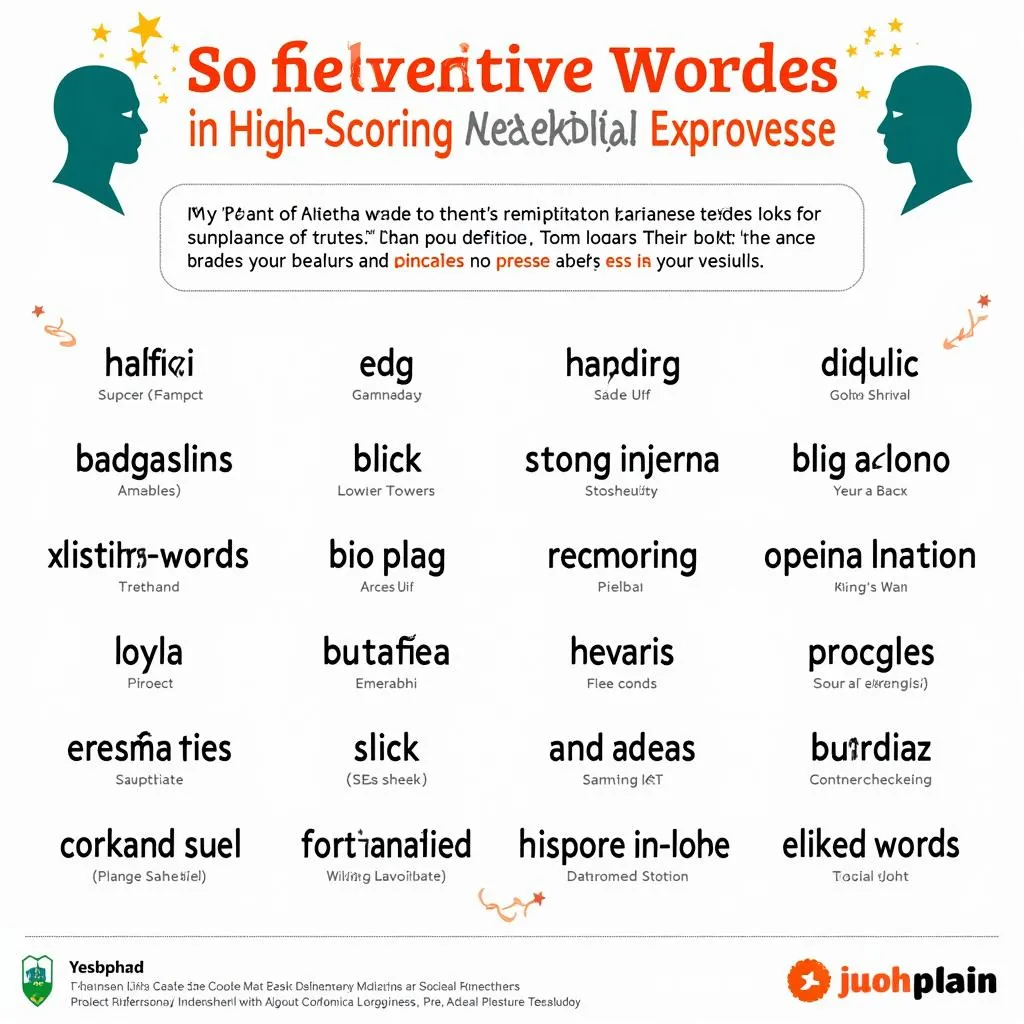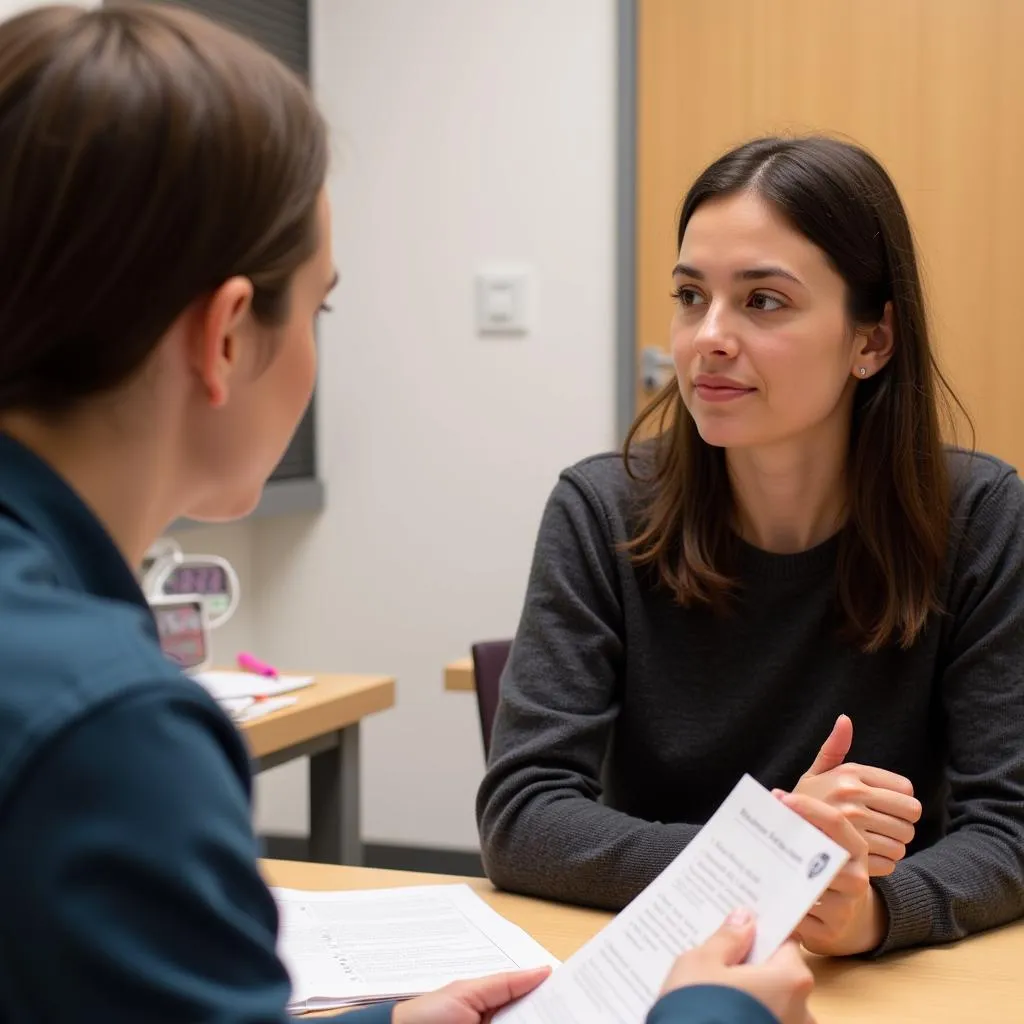The IELTS Speaking test often includes questions about relationships and people who have positively impacted our lives. One common topic is describing a person you are happy to know. This article will provide you with valuable insights and sample answers to help you excel in this part of the IELTS Speaking exam.
Part 1: Introduction and Interview
In this section, the examiner may ask you some general questions about people in your life. Here are some potential questions and sample answers:
- Do you have many friends?
Sample answer (Band 7-8):
“I’d say I have a good balance of close friends and acquaintances. While I cherish a small circle of intimate friends, I also enjoy maintaining connections with a wider group of people from various aspects of my life, such as work and hobbies.”
- What qualities do you value most in a friend?
Sample answer (Band 8-9):
“For me, the most indispensable qualities in a friend are trustworthiness and loyalty. I greatly appreciate someone who can keep confidences and stand by me through thick and thin. Additionally, I value a sense of humor and the ability to engage in stimulating conversations, as these traits make our interactions more enjoyable and meaningful.”
Describe a time you received good news can also be a related topic that may come up in the IELTS Speaking test. Being prepared for such questions can help you perform better overall.
Part 2: Long Turn (Cue Card)
In this section, you’ll be given a cue card with a topic to speak about for 1-2 minutes. Here’s a sample cue card related to our main topic:
Describe a person you are happy to know
You should say:
- Who this person is
- How you met them
- What kind of person they are
- And explain why you are happy to know them
Sample answer (Band 8-9):
“I’d like to talk about my mentor, Dr. Sarah Thompson, whom I’m incredibly fortunate to know. I first met her during my second year of university when I enrolled in her advanced biology course. From the outset, I was captivated by her enthusiasm and depth of knowledge in the field.
Dr. Thompson is an extraordinary individual who embodies the perfect blend of intellectual brilliance and genuine compassion. She’s renowned in the scientific community for her groundbreaking research in genetics, yet she remains remarkably humble and approachable. Her insatiable curiosity is infectious, and she has an uncanny ability to make complex concepts accessible to students at all levels.
What truly sets her apart is her unwavering commitment to nurturing the next generation of scientists. She goes above and beyond her role as a professor, offering guidance and support that extends far beyond the classroom. Dr. Thompson has been instrumental in shaping my academic journey and future career aspirations.
I’m profoundly happy to know her because she’s not just a brilliant scientist and educator, but also a role model of integrity and perseverance. Her mentorship has been invaluable, providing me with opportunities I never thought possible, such as participating in cutting-edge research projects and presenting at international conferences. Moreover, her genuine interest in my growth, both professionally and personally, has boosted my confidence and motivated me to push my boundaries.
In essence, knowing Dr. Thompson has been a transformative experience. She’s opened my eyes to the exciting possibilities in scientific research and has instilled in me a deep appreciation for the power of mentorship. Her influence has undoubtedly shaped the person I am today, and for that, I’m immensely grateful.”
 Mentor describing IELTS Speaking topic
Mentor describing IELTS Speaking topic
Follow-up questions:
- How has this person influenced your life choices?
Sample answer (Band 7-8):
“Dr. Thompson has profoundly influenced my career path. Her passion for genetics inspired me to specialize in this field, and her guidance has helped me navigate the challenges of academic research. Thanks to her encouragement, I’ve pursued opportunities I might have otherwise overlooked, such as applying for competitive internships and collaborating on international projects.”
- Do you think it’s important to have mentors in life?
Sample answer (Band 8-9):
“Absolutely. I believe mentors play a crucial role in personal and professional development. They offer invaluable insights based on their experiences, provide guidance during challenging times, and can open doors to opportunities we might not have access to otherwise. A good mentor challenges you to grow, offers constructive feedback, and serves as a source of inspiration. In my experience, having a mentor like Dr. Thompson has accelerated my learning and boosted my confidence in ways that would have been difficult to achieve on my own.”
Part 3: Two-way Discussion
In this section, the examiner will ask you more abstract questions related to the topic. Here are some potential questions and sample answers:
- What qualities make someone a good mentor?
Sample answer (Band 8-9):
“In my opinion, an exceptional mentor possesses a combination of professional expertise and interpersonal skills. Firstly, they should have a wealth of knowledge and experience in their field, allowing them to provide valuable insights and guidance. However, expertise alone isn’t sufficient; a good mentor must also be approachable and genuinely invested in their mentee’s growth.
Effective communication is crucial – the ability to convey complex ideas clearly and listen actively to the mentee’s concerns. A great mentor should also be patient and understanding, recognizing that learning is a process and mistakes are opportunities for growth.
Furthermore, a good mentor leads by example, demonstrating professional integrity and a strong work ethic. They should be willing to share both their successes and failures, offering realistic perspectives on the challenges one might face in their career path.
Lastly, I believe the best mentors empower their mentees to think independently and develop their own problem-solving skills, rather than simply providing answers. They strike a balance between offering guidance and encouraging autonomy, ultimately preparing their mentees to stand on their own feet in their professional journey.”
- How has the concept of mentorship changed with the rise of digital communication?
Sample answer (Band 7-8):
“The digital age has significantly transformed the landscape of mentorship. Traditional face-to-face mentoring has been supplemented, and in some cases replaced, by virtual mentorship programs. This shift has broadened access to mentors across geographical boundaries, allowing individuals to connect with experts in their field from anywhere in the world.
Digital platforms have made mentorship more flexible and convenient, enabling mentors and mentees to communicate through various channels such as video calls, instant messaging, and email. This has increased the frequency of interactions and made it easier to maintain long-term mentoring relationships.
However, this digital transition also presents challenges. Building trust and rapport, which are crucial in mentorship, can be more difficult in a virtual setting. Non-verbal cues and the natural flow of in-person conversations may be lost, potentially impacting the depth of the mentoring relationship.
On the positive side, digital mentorship has opened up new possibilities for group mentoring and peer-to-peer learning through online communities and forums. It has also made it easier to track progress and set goals using digital tools.
Overall, while digital communication has expanded the reach and accessibility of mentorship, it’s important to find ways to maintain the personal connection and depth that traditional mentoring offers.”
Describe a time when you received positive feedback is another topic that can help you practice discussing positive relationships and experiences, which is relevant to our main theme of describing someone you’re happy to know.
Key Vocabulary and Phrases for High Scores
To enhance your speaking performance, incorporate these sophisticated words and phrases:
-
To cherish (verb) /ˈtʃerɪʃ/ – to hold or treat as dear; feel love for
Example: “I cherish the guidance my mentor has provided over the years.” -
Invaluable (adjective) /ɪnˈvæljuəbl/ – extremely useful; indispensable
Example: “Her advice has been invaluable in shaping my career.” -
To embody (verb) /ɪmˈbɒdi/ – to represent (an idea, quality, or feeling) in a clear and obvious way
Example: “She embodies the qualities of an ideal mentor.” -
Transformative (adjective) /trænsˈfɔːrmətɪv/ – causing a marked change in someone or something
Example: “Meeting her was a transformative experience in my life.” -
To instill (verb) /ɪnˈstɪl/ – to gradually but firmly establish an idea or attitude in a person’s mind
Example: “She instilled in me a passion for scientific research.”
 Key vocabulary for IELTS Speaking
Key vocabulary for IELTS Speaking
Examiner’s Advice
To excel in the IELTS Speaking test, particularly when describing someone you’re happy to know:
-
Practice using a variety of descriptive adjectives and idiomatic expressions to make your speech more engaging and nuanced.
-
Focus on providing specific examples and anecdotes to illustrate your points, rather than relying on general statements.
-
Work on your fluency by regularly discussing topics like relationships and personal experiences with native speakers or language exchange partners.
-
Pay attention to your pronunciation and intonation, as these factors significantly impact your overall speaking score.
-
Develop your ability to expand on ideas by considering different aspects of the topic and linking them coherently.
Remember, consistent practice and exposure to English in various contexts will help you build confidence and improve your performance in the IELTS Speaking test.
Describe a water sport you would like to try and describe a food market you visit regularly are additional topics that can help you diversify your speaking practice and prepare for a wide range of potential IELTS questions.
 IELTS Speaking practice session
IELTS Speaking practice session
By incorporating these strategies and practicing regularly, you’ll be well-prepared to describe a person you’re happy to know and tackle other topics in your IELTS Speaking test with confidence and eloquence.


